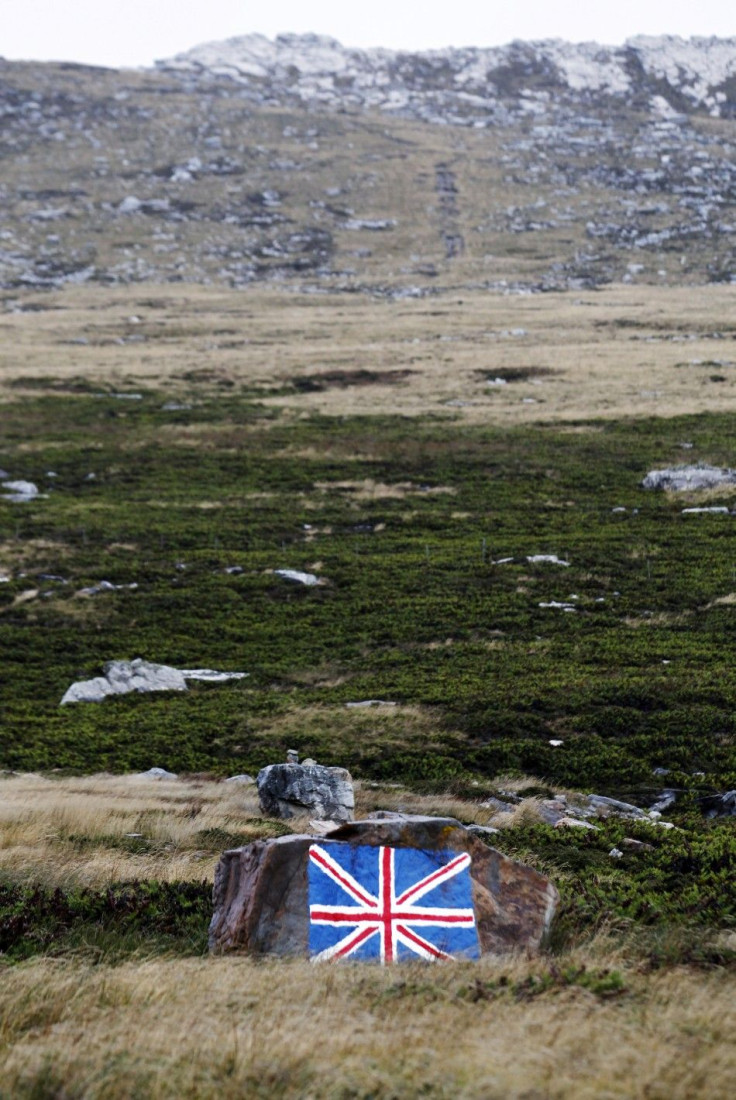We Will Control Falkland Islands Within 20 Years: Argentine Foreign Minister

Argentina’s Minister of Foreign Relations Hector Timerman vowed that his country will control the disputed Falkland Island “within 20 years” and that no other nation on Earth supports Britain’s sovereignty over the territories.
During a visit to London, Timerman told the Guardian and Independent newspapers that the British had "occupied" the islands in order to gain access to its oil and natural resources.
“I think that the world is going through a process of understanding more and more that this is a colonial issue, an issue of colonialism, and that the people living there were transferred to the islands," he said at the Argentine embassy, during his first ever visit to London.
Timerman, son of legendary Argentinean journalist and human rights activist, Jacobo Timerman, assured that under Buenos Aires rule, Las Malvinas (the name Argentina has bestowed on the Falklands), the local residents would be well taken care of, including “their way of life, their language” and even their “right to remain British citizens.”
In 1982, Britain and Argentina fought a brief war over the islands, which cost the lives of more than 900 people, including 649 Argentine military personnel.
During his sojourn in England, Timerman refused to meet with his British counterpart, William Hague, after the UK Foreign Office said Falkland representatives would have to attend any discussions related to the islands’ future.
"We have been trying to find a peaceful solution for 180 years,” Timerman explained.
“I think the ‘fanatics’ are not in Buenos Aires [but] maybe in the United Kingdom, because they are 14,000 kilometers [9,000 miles] away from the islands. And I think [the British] are using the people living in the islands for political [reasons] and to have access to oil and natural resources, which belong to the Argentine people. I think we are not fanatical at all.”
Defending his refusal to parley with the islanders themselves, Timerman declared: "It is an issue that has to be resolved by Argentina and the United Kingdom. By introducing a third party [the Falkland Islanders], the United Kingdom is changing more than 40 resolutions by the United Nations, which call on [just] the two countries to negotiate."
The foreign minister further rejected a referendum that the British government of Prime Minister David Cameron plans to hold in March to gauge the Falklanders’ wish to remain a UK territory. (It is widely expected to pass in favor of London.)
"[That referendum] is something that doesn't mean anything, because if you ask the colonial people who came with a colonial power and replaced the people who were living in the islands, it is like asking the British citizens of the Malvinas Islands if they want to remain British,” he said.
But Timerman also assured that his government would not resort to military force to take the islands forcibly, citing his own family’s history.
"I am a victim of a dictatorship; please take me more seriously,” he stated.
[Timerman’s father, Jacobo, published the leftist La Opinion newspaper in Argentina during the 1970s, which criticized the human rights abuses perpetrated by the military government in power at the time. Jacobo himself was arrested and tortured by the state security and imprisoned. He was later forced into exile and died in 1999.]
Referring to Britain’s alleged commercial interests in the islands, the foreign minister stated: "Wherever there is a smell of oil, big powers start to look around and they find a reason to stay there. I think probably oil will complicate the peaceful solution that is asked for by the United Nations. I think in history that Britain has had a tendency to stay in places where there are natural resources belonging to other people."
Argentina’s President Cristina Kirchner has made the Falklands a high-profile cause of her administration, repeatedly asserting Argentine sovereignty. She has been criticized for using the islands (where only about 3,000 people live) as a way to distract attention away from her country’s economic problems.
Timerman shrugged off such allegations.
"I think it is the United Kingdom that is going through an economic crisis and is becoming isolationist more than Argentina,” he thundered. “They [the UK] want to get out of the European Union; there is a sense here [in Britain] that we want to stop the world and get out."
A spokesman for the Foreign Office rejected Timerman’s remarks.
“The people of the Falklands are British,” she said in a statement. “They remain free to choose their own futures, both politically and economically, and have a right to self-determination as enshrined in the U.N. Charter. This is a fundamental human right for all peoples.”
© Copyright IBTimes 2025. All rights reserved.





















